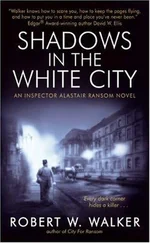This firm was a bank that enjoyed international significance, a large building with a palatial look to it in which hundreds of young and old, male and female people were employed. They all wrote with diligent fingers, made calculations using calculating machines and also sometimes their memories, thought using their thoughts and made themselves useful with their knowledge. There were any number of young, elegant letter-writing clerks who could speak four to seven languages. These clerks stood out from the rest of the calculating pack by virtue of their refined foreign airs. They had traveled on ocean liners, attended the theater in Paris and New York, visited tea houses in Yokohama and knew how to amuse themselves in Cairo. Now they were handling the bank’s correspondence and waited for their salaries to increase while casting aspersions on their homeland, which they found tiny and dingy. The calculating pack consisted for the most part of older individuals who clung to their posts large and small as if to beams and stakes. All of them had long noses from years of calculations and went about in threadbare, shabby, abraded, creased and crumpled garments. But among them were a number of intelligent individuals who perhaps secretly pursued strange exotic hobbies and thus led lives that, while quiet and isolated, were nonetheless dignified. Many of the younger clerks, however, were incapable of spending their free time in refined ways; mostly they were the offspring of rural landowners, innkeepers, farmers and craftsmen, who, the moment they arrived in the city, did all they could to cultivate a refined urban air, though they never quite succeeded, and so they failed to advance beyond a certain clodhopperish coarseness. Meanwhile there were also quiet characters with delicate manners who stood out oddly amid the louts. The bank’s director was an old quiet man whom no one ever saw. It seemed that the threads and roots of the entire monstrous enterprise lay in a tangle inside his head. As a painter thinks in colors, a musician in notes, a sculptor in stone, a baker in flour, a poet in words, and a farmer in patches of land, this man appeared to think in money. One good thought of his, thought at just the right moment, could bring in half a million in the space of half an hour. Possibly! Possibly more, possibly less, possibly nothing at all, and to be sure, this man must secretly have lost money now and then without his subordinates being any the wiser: They went off to lunch when the church-bell rang at noon, returned at two, worked another four hours, went away, slept, awoke, got up for breakfast, went back into the building just like before, resumed their labors, and no one knew a thing, for no one had time to learn anything at all about these mysterious goings-on. And the morose quiet old man went on thinking in his private office. For matters pertaining to his employees he had only a weak half-smile. This smile had something poetic, exalted, plan-hatching and legislative about it. Simon often tried to imagine himself in the director’s shoes. But this image generally vanished before his eyes, and every last concept receded from him when he thought about this: “There is something proud and exalted about him, but also something incomprehensible and almost inhuman. Why in the world do all these people, copyists and calculators, indeed even girls in the bloom of youth, go through the selfsame entryway into the selfsame building just in order to scribble away, try out pens, calculate and wave their arms about, study and blow their noses, sharpen pencils and carry papers about in their hands? Do they do so out of pleasure or under duress, and are they conscious of performing some sensible fruitful activity? All of them come from quite different directions, some even arrive by train from distant regions, pricking up their ears to see whether they still have time to run a private errand before work: They are as patient as a herd of lambs, and when evening arrives they scatter, each on his own particular trajectory, and tomorrow they’ll all be back again at the same time. They see one another, recognize each other by gait, voice and way of opening a door, but they have very little to do with one another. They are all alike and yet are strangers to each other, and when one of them dies or embezzles something, they puzzle about it for the space of a morning, and then things go on as before. It’s been known to happen that in the middle of his copy-work one of them has a stroke. Does it help him that he was employed at this firm for a good fifty years? For fifty years on end he went in and out the selfsame door, employed the selfsame turns of phrase in business letters a thousand times over, went through several new suits and often felt surprised how long each pair of boots lasted. And now? Can one say this man has lived? And don’t thousands of people live just like this? Were perhaps his children the thing that mattered most to him in life, was his wife the joy of his existence? Yes, that could be. I don’t want to pretend to be an expert in these matters, for this would appear quite appropriate to me, given my youth. Outside it is spring, and I could spring right out the window, that’s how painful I find this long, long not-being-allowed-to-move-one’s-limbs. A bank is a foolish thing in springtime. How would a banking establishment look standing, say, upon a lush green meadow? Perhaps my pen would look to me like a young flower freshly sprouted from the earth. But no, I’ve no desire to make fun. Perhaps this is all exactly as it has to be, perhaps everything has a purpose. I just can’t make out the big picture because the view itself I see too intensely. This view is somewhat discouraging: this sky outside the windows, and in my ear this sweet singing. The white clouds are out walking in the sky, and I have to sit here writing. Why do I have an eye for the clouds? If I were a cobbler, at least I’d be making shoes for children, men and ladies, and then all these people could go walking in the streets on spring days wearing my shoes. I would experience spring when I saw my shoes on their feet. Here I cannot feel the springtime — the springtime is disturbing me.”
Simon hung his head, furious to be having such tender feelings.
One evening as he was on his way home across the bridge all lit up for the night, Simon noticed a man walking ahead of him in long strides. This figure in its greatcoated slimness filled him with sweet alarm. He thought he recognized this walk, these trousers, this odd cauldron of a hat, the fluttering hair. The stranger was carrying a flimsy portfolio beneath one arm. Simon hastened his steps, overcome with tremulous forebodings, and suddenly he threw his arms about the walker’s neck, crying out “Brother!” Kaspar embraced him. Loudly conversing, they went home, that is: They had a rather steep ascent to make up the mountainside whose slope the city had covered with gardens and villas. At the top, they were welcomed by the small run-down cottages of the outskirts. The setting sun blazed in their windows, turning them into radiant eyes gazing fixedly, beautifully into the distance. Down below lay the city, spread out broad and luxuriant upon the plain like a glittering twinkling carpet, the evening bells, which are always different from morning bells, were ringing far below, the lake lay, its outlines indistinct, in its delicate ineffable form at the foot of the city, the mountain and all the gardens. Not many lights were sparkling yet, but those whose glow could be seen were burning with a splendid unfamiliar keenness. People were now walking and hastening down below in all the crooked hidden streets, you couldn’t see them, but you knew they were there. “It would be splendid to stroll down elegant Bahnhofstrasse just now,” Simon said. Kaspar walked in silence. He had become a magnificent fellow. “How he strides along,” Simon thought. Finally they were standing before their house. “Really?” Kaspar laughed: “You live at the edge of the forest?” Both of them went inside.
Читать дальше












